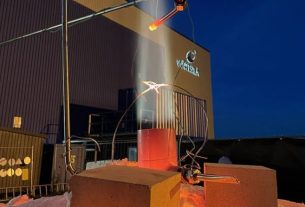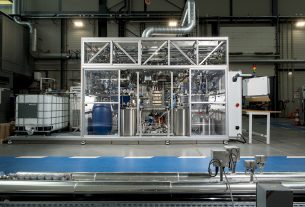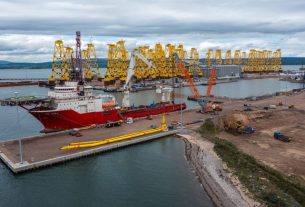Germany – The impact of the Ukraine conflict on energy supply has been discussed by RWE.
Security of supply and climate protection are now more than ever linked, according to the company. As a result, RWE is continuing to expand its green core business as planned, with gross investments of €50 billion by 2030. Long-term, renewable energy supply and the operation of flexible generation plants based on green molecules are critical to becoming less reliant on imported coal, oil, and gas. In addition, in order to replace raw material imports from Russia, the company will support short- and medium-term measures to ensure supply security and diversify fuel supplies.
Short-term measures are required to ensure energy supply stability for the coming winter and subsequent years. In this context, the company is evaluating which coal-fired power plant units that have already been taken off the grid or are scheduled for decommissioning could be transferred to a reserve instead. This applies to the 300-MW Neurath unit that was decommissioned at the end of last year, as well as power plants that are scheduled to go off grid this year (1,500 MW) and those that are currently on “security standby” (900 MW). Kraftwerk Westfalen (800 MW), which was decommissioned at the end of 2020, is one of the hard coal-fired power plants under consideration. It is up to the German government to decide whether these units will need to operate on a temporary basis and, if so, to what extent they should be used to reduce gas consumption.
Electricity from renewables
There is no doubt in RWE’s mind that these measures will have no impact on the company’s fundamental decision to phase out coal. The rate of expansion of renewables and grids, the ramp-up of the hydrogen economy, and the construction of flexible generation capacity will all play a role in accelerating the coal phase-out.
In terms of supply security, diversifying raw material sources will be critical. As a result, the German government is concentrating on the construction of LNG terminals, among other things, in order to reduce reliance on pipeline-based gas supply. A Memorandum of Understanding was signed just a few days ago in Brunsbüttel, near Hamburg, to implement such a project. RWE will be a key partner in the project, with a particular focus on the terminal’s subsequent conversion to allow green molecule imports. Work is in full swing to ensure that operations can begin as soon as possible. Brunsbüttel can be a role model for building infrastructure that can also drive the ramp-up of the hydrogen economy thanks to pragmatic action, quick planning and approval processes, short construction timelines, and high safety standards. Policymakers are accelerating efforts to ensure that Germany’s electricity supply is almost entirely derived from renewable sources by 2035.




